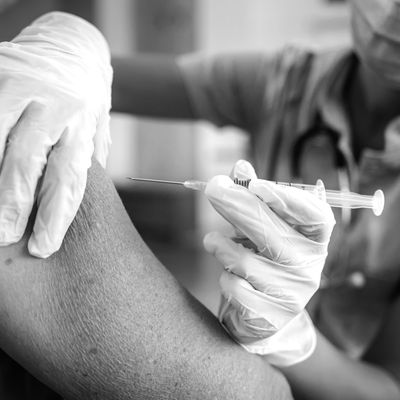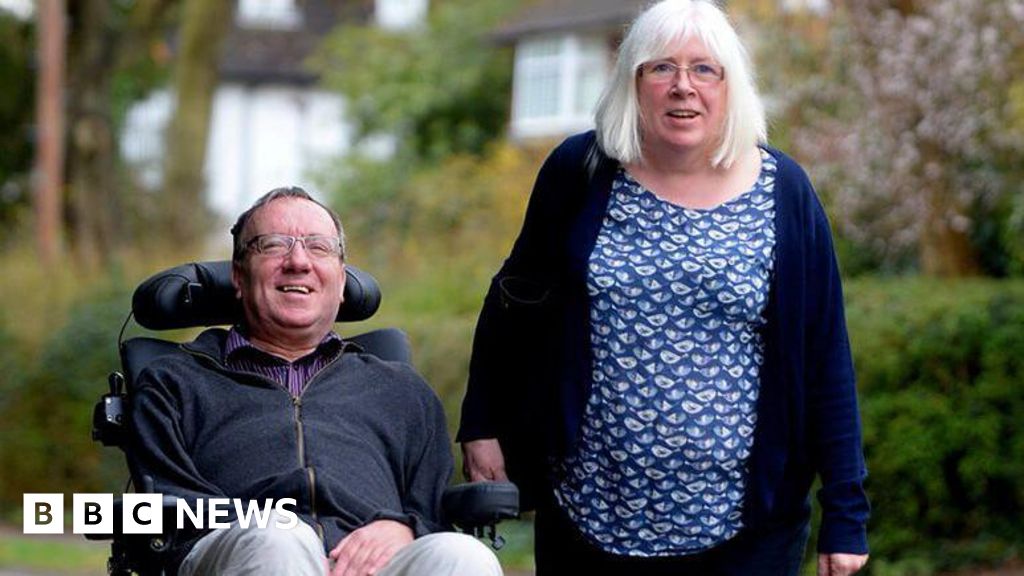
Photo: dusanpetkovic/Getty Images
The school year is about to start and fall is just a few weeks away, which, I’m sorry to break it to you, means the season of sniffles and coughs is nearly upon us. This year, notorious anti-vaxxer Robert F. Kennedy Jr. is at the helm of the Health and Human Services Department and is already making changes to public-health guidance that suit his agenda. For example, in May, the Centers for Disease Control and Prevention stopped recommending the COVID-19 vaccine for children who are 6 months and older. The American Academy of Pediatrics, the country’s leading pediatrician group, opposes the decision, saying on Tuesday that the COVID-19 vaccine should be part of the annual immunization schedule for children between 6 and 23 months of age. To add to the confusion, there are rumors circulating on social media that, as soon as Friday, the FDA could announce it is restricting access to the COVID vaccine to adults older than 65 and people with high-risk underlying conditions.
With the COVID-vaccination landscape shaping up to be a hot mess, what does all of this mean for people who want to protect themselves — and their children — against getting infected with the virus in the coming months? Will RFK Jr. also bring his anti-vaccine views to bear on the government’s recommendations for the flu shot and RSV vaccine? And what else can we do to lower the risk of becoming sick in this environment? I called up Dr. Shira Doron, chief infection-control officer at Tufts Medicine, to chat about what to expect this cold and flu season.
The CDC’s forecasting models show that COVID-19 infections are currently growing in 34 states. Anecdotally, it sure feels like we are in a surge — I got the virus after traveling recently, while several co-workers and friends from across the country also came down with it this month. Doron says that an uptick in cases at this time of year is nothing out of the ordinary, however. While COVID-19 doesn’t exactly follow a seasonal pattern, experts have learned over the past few years to expect a summer wave. “In the fall, it typically goes down, and then it comes back up more in the winter,” Doron says. “The virus usually peaks just around January 1.” In other words: The current summer wave shouldn’t be cause for alarm.
Doron says whether people will have universal access to the COVID-19 vaccine this fall remains to be seen. FDA commissioner Martin Makary said in May that the agency would propose limiting new vaccines or so-called updated booster shots to people who are 65 and older, or those who are between the ages of 12 and 64 and have at least one underlying health condition that puts them at higher risk.
But the federal government has not announced a decision yet. “The CDC’s advisory committee was supposed to vote on that in June, and that didn’t happen,” Doron says. “They’re now not meeting until September, which is very late to be making decisions about who gets annual vaccination for COVID. It’s unclear how exactly that translates into insurance coverage and access.”
In May, the CDC announced it would no longer recommend the vaccine for healthy children and pregnant women. Still, the agency said kids who between 6 months and 17 years of age “may receive” the shot “informed by the clinical judgment of a health-care provider and personal preference and circumstances.”
The American College of Obstetricians and Gynecologists and 30 other leading health organizations have also said pregnant people should continue to get vaccinated, because it’ll protect them and their infants after birth. These groups are urging insurers to continue covering vaccines for patients who are pregnant.
While Doron says that you certainly could do that, it may not protect you as effectively in the long run, because the formulation of the upcoming vaccine may be different than the current one to account for the most common COVID-19 strain circulating at the moment. But some protection is still better than none. Doron says that if you haven’t gotten vaccinated against COVID each year, it wouldn’t hurt to change that now. “You stand to gain more from getting it,” she adds. “The more risk factors you have, the more likely you are to be somebody who would experience severe disease.”
The Trump administration has not updated its CDC recommendations for the flu vaccine so far, Doron says. “Health authorities have been recommending annual influenza vaccination for everyone over the age of 6 months,” she says. “We don’t expect any change in that.” The one thing that is different this year is that RFK Jr. recently announced that the CDC would stop recommending influenza-vaccine formulations that contain the preservative thimerosal; the HHS secretary has long claimed that thimerosal has been linked to the “epidemic of childhood neurological disorders,” despite there being no scientific evidence to support his position. “That’s probably not a big change for most people,” says Doron, largely because this preservative is rare. Only about 4 percent of all flu vaccines administered last fall and winter in the U.S. contained thimerosal, according to the CDC. So in practice, people should be able to get the flu vaccine easily from their health provider this fall.
Respiratory syncytial virus, better known as RSV, typically begins spreading in the fall as well. Currently, the CDC recommends the RSV vaccine for pregnant people, adults over 75, and people over 50 with certain high-risk conditions. (As of now, the vaccine is a onetime dose, not an annual shot.) Infants under 8 months can also receive monoclonal antibody shots to help prevent infection. These guidelines are unlikely to change, according to Doron. “We don’t expect any sort of issues with access, reduced eligibility, or reduced insurance coverage,” she adds.
When it comes to RSV, Doron recommends that those who are eligible get vaccinated in the late summer or early fall. That way, people will be protected by antibodies before cases begin spreading in earnest. For the flu, Doron says the general recommendation is for people to get their annual shot in late October to ensure they are protected through the winter and spring. Alternatively, patients can check out the website for their state’s health department to see how flu cases are trending locally. “You can be watching in September and October,” she suggests. “If you’re starting to see that curve go up, then bump that timeline up and get it sooner.”
The COVID-19 vaccine can be harder to time because the virus doesn’t follow a very predictable seasonal pattern. “If you get your vaccine in October, it might cover you for that winter wave,” Doron says, “but it’s certainly not going to still be helping you very much by next summer.” She adds that this is due to how short-lived the vaccine’s efficacy is when it comes to preventing infection, even though it’s effective at preventing serious disease for much longer. Doron suggests either getting your COVID and flu vaccines simultaneously in the fall or waiting to get the COVID shot until two to four weeks before a big event you don’t want to miss — whether that’s a vacation, a wedding, or the holidays.
While there’s no silver bullet to prevent infections, Doron says that maintaining healthy habits — a nutritious diet, good sleep, managing stress, working out, and treating underlying medical conditions — are key to strengthening your immune system. She recommends washing your hands frequently and avoiding touching your face. Doron added that wearing a high-quality, well-fitting mask can help decrease the risk of acquiring a respiratory virus in certain settings.
“I do think that getting a respiratory viral infection most winters is inevitable,” she says. “So when you do, you want to be as healthy as possible so that you will weather the storm successfully.”

